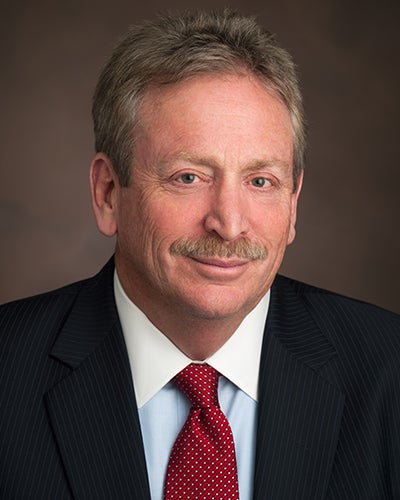 Along with the honor of operating an electric cooperative on behalf of you, our members, comes the accountability of being prepared for the changing future in energy. Two recent, recurrent themes have emerged that emphasize the need for United Power to work diligently to make Our Cooperative Roadmap a reality.
Along with the honor of operating an electric cooperative on behalf of you, our members, comes the accountability of being prepared for the changing future in energy. Two recent, recurrent themes have emerged that emphasize the need for United Power to work diligently to make Our Cooperative Roadmap a reality.
The first is the need to continue investing in the grid, and the second is an ongoing concern that the need for capacity — the backbone of reliable power — is getting perilously close to a crisis. Both issues tend to focus on the problem. United Power is actively seeking solutions.
There has been a lot of talk recently about investing significant financial resources in the grid. The Inflation Reduction Act and Bipartisan Infrastructure Law include funding to target large-scale projects over the next decade. These investments are needed and welcomed, but the completion estimates are measured in years or even decades. Meeting the needs of a growing enterprise like United Power is at least four to five years away, even with aggressive siting and execution.
People tend to think of the grid as the large power lines that deliver electricity from power plants miles away. Much of the energy transition challenge is that a lot of low or non-carbon generation is located far from population centers. Coupled with permitting challenges, supply chain constraints, and a confusing financing model, large-scale projects just take time.
But the grid also includes distribution systems, operated by utilities like United Power. It is the main conduit to our members and requires as much — or more — investment as its larger cousins. Your Board of Directors has continuously supported budgets to upgrade and expand critical infrastructure, and these investments have paid off. United Power has one of the best distribution networks in the country, evidenced by high reliability numbers, rapid outage response, and data-driven system management.
A robust distribution grid is also critical to the second issue — the potential for seasonal power shortages.
The North American Reliability Corporation (NERC), responsible for assessing and enforcing reliability standards, recently found the country is at an elevated risk of having insufficient energy supplies to meet demand in extreme conditions. The reasons for this potential shortfall range from coal and nuclear plant closures and an expanded reliance on natural gas to the increased electrification of everything.
“Extreme cold weather events can cause electricity demand to deviate significantly from historical forecasts. Electricity demand in winter is closely tied to outside temperature. As electric heat pumps and heating systems become more prevalent, their combined effect on system demand is even more pronounced,” NERC stated.
The industry has tried to slow the energy transition and continue operating money-losing coal plants instead of proposing solutions. And, importantly, there are solutions. This is where United Power’s strategy of hyper-localizing generation and storage comes into play.
As we prepare for our upcoming power supply transition, United Power is adding significant amounts of battery storage, spread across our system. We are locating natural gas peaking units tied in to the distribution — versus transmission — networks and contracting with power supplies closer to the communities we serve. This reduces line losses, improves reliability, and keeps tax dollars local. We will couple this with efficiency programs, support any members who want to generate part of their own power through solar, and expand demand response options now that we will have a realistic peak window.
Of course, we will continue to get power from generation plants and support efforts to build out the transmission grid as it will continue to have a role in a modern electric enterprise. But, we will focus on what we can do locally.
As always, please feel free to reach out with your questions, comments, or concerns. United Power welcomes the opportunity to meet with your community groups and discuss the cooperative’s response to the changing industry.

